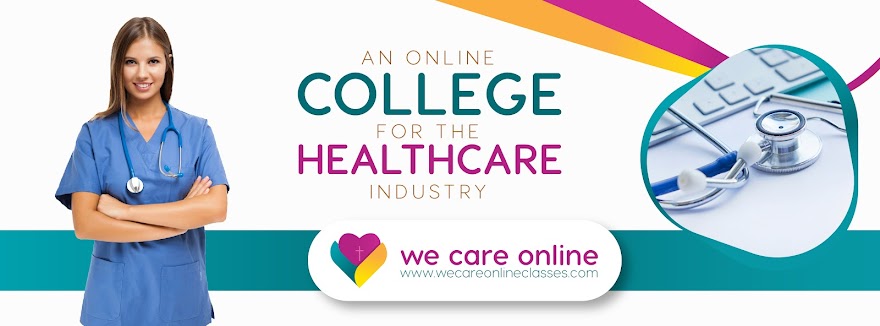Breast cancer. Just reading those words can make many women worry. And that’s natural.
Nearly everyone knows someone touched by the disease.
But there is a lot of good news about breast cancer these days.
Treatments keep getting better, and we know more than ever about ways to
prevent the disease. These eight simple steps can help lower the risk
of breast cancer. Not every one applies to every woman, but together
they can have a big impact.
1. Keep Weight in Check It’s easy to tune out
because it gets said so often, but maintaining a healthy weight is an
important goal for everyone. Being overweight can increase the risk of
many different cancers, including breast cancer, especially after
menopause.
2. Be Physically Active
Exercise is as close to a
silver bullet for good health as there is, and women who are physically
active for at least 30 minutes a day have a lower risk of breast
cancer. Regular exercise is also one of the best ways to help keep
weight in check.
3. Avoid Too Much Alcohol Alcohol can be good
for the heart, but when it comes to cancer, there’s really nothing good
about it. Even moderate amounts increase the risk of breast cancer. In
general, if you drink moderately (no more than one drink a day for
women), the overall health benefits of drinking outweigh the risks. But
if you don’t drink, don’t feel that you need to start.
4.Breastfeed, If Possible
Breastfeeding for a total of one year or more (combined for all children) lowers the risk of breast cancer.
- See more at: http://www.siteman.wustl.edu/ContentPage.aspx?id=7582#sthash.cd2W8KUz.dpuf
Breast cancer. Just reading those words can make many women worry. And that’s natural.
Nearly everyone knows someone touched by the disease.
But there is a lot of good news about breast cancer these days.
Treatments keep getting better, and we know more than ever about ways to
prevent the disease. These eight simple steps can help lower the risk
of breast cancer. Not every one applies to every woman, but together
they can have a big impact.
1. Keep Weight in Check It’s easy to tune out
because it gets said so often, but maintaining a healthy weight is an
important goal for everyone. Being overweight can increase the risk of
many different cancers, including breast cancer, especially after
menopause.
2. Be Physically Active
Exercise is as close to a
silver bullet for good health as there is, and women who are physically
active for at least 30 minutes a day have a lower risk of breast
cancer. Regular exercise is also one of the best ways to help keep
weight in check.
3. Avoid Too Much Alcohol Alcohol can be good
for the heart, but when it comes to cancer, there’s really nothing good
about it. Even moderate amounts increase the risk of breast cancer. In
general, if you drink moderately (no more than one drink a day for
women), the overall health benefits of drinking outweigh the risks. But
if you don’t drink, don’t feel that you need to start.
4.Breastfeed, If Possible
Breastfeeding for a total of one year or more (combined for all children) lowers the risk of breast cancer.
- See more at: http://www.siteman.wustl.edu/ContentPage.aspx?id=7582#sthash.cd2W8KUz.dpuf
Breast cancer. Just reading those words can make many women worry. And that’s natural.
Nearly everyone knows someone touched by the disease.
But there is a lot of good news about breast cancer these days.
Treatments keep getting better, and we know more than ever about ways to
prevent the disease. These eight simple steps can help lower the risk
of breast cancer. Not every one applies to every woman, but together
they can have a big impact.
1. Keep Weight in Check It’s easy to tune out
because it gets said so often, but maintaining a healthy weight is an
important goal for everyone. Being overweight can increase the risk of
many different cancers, including breast cancer, especially after
menopause.
2. Be Physically Active
Exercise is as close to a
silver bullet for good health as there is, and women who are physically
active for at least 30 minutes a day have a lower risk of breast
cancer. Regular exercise is also one of the best ways to help keep
weight in check.
3. Avoid Too Much Alcohol Alcohol can be good
for the heart, but when it comes to cancer, there’s really nothing good
about it. Even moderate amounts increase the risk of breast cancer. In
general, if you drink moderately (no more than one drink a day for
women), the overall health benefits of drinking outweigh the risks. But
if you don’t drink, don’t feel that you need to start.
4.Breastfeed, If Possible
Breastfeeding for a total of one year or more (combined for all children) lowers the risk of breast cancer.
- See more at: http://www.siteman.wustl.edu/ContentPage.aspx?id=7582#sthash.cd2W8KUz.dpuf
Breast cancer. Just reading those words can make many women worry. And that’s natural.
Nearly everyone knows someone touched by the disease.
But there is a lot of good news about breast cancer these days.
Treatments keep getting better, and we know more than ever about ways to
prevent the disease. These eight simple steps can help lower the risk
of breast cancer. Not every one applies to every woman, but together
they can have a big impact.
1. Keep Weight in Check It’s easy to tune out
because it gets said so often, but maintaining a healthy weight is an
important goal for everyone. Being overweight can increase the risk of
many different cancers, including breast cancer, especially after
menopause.
2. Be Physically Active
Exercise is as close to a
silver bullet for good health as there is, and women who are physically
active for at least 30 minutes a day have a lower risk of breast
cancer. Regular exercise is also one of the best ways to help keep
weight in check.
3. Avoid Too Much Alcohol Alcohol can be good
for the heart, but when it comes to cancer, there’s really nothing good
about it. Even moderate amounts increase the risk of breast cancer. In
general, if you drink moderately (no more than one drink a day for
women), the overall health benefits of drinking outweigh the risks. But
if you don’t drink, don’t feel that you need to start.
4.Breastfeed, If Possible
Breastfeeding for a total of one year or more (combined for all children) lowers the risk of breast cancer.
- See more at: http://www.siteman.wustl.edu/ContentPage.aspx?id=7582#sthash.cd2W8KUz.dpuf
Breast cancer. Just reading those words can make many women worry. And that’s natural.
Nearly everyone knows someone touched by the disease.
But there is a lot of good news about breast cancer these days.
Treatments keep getting better, and we know more than ever about ways to
prevent the disease. These eight simple steps can help lower the risk
of breast cancer. Not every one applies to every woman, but together
they can have a big impact.
1. Keep Weight in Check It’s easy to tune out
because it gets said so often, but maintaining a healthy weight is an
important goal for everyone. Being overweight can increase the risk of
many different cancers, including breast cancer, especially after
menopause.
2. Be Physically Active
Exercise is as close to a
silver bullet for good health as there is, and women who are physically
active for at least 30 minutes a day have a lower risk of breast
cancer. Regular exercise is also one of the best ways to help keep
weight in check.
3. Avoid Too Much Alcohol Alcohol can be good
for the heart, but when it comes to cancer, there’s really nothing good
about it. Even moderate amounts increase the risk of breast cancer. In
general, if you drink moderately (no more than one drink a day for
women), the overall health benefits of drinking outweigh the risks. But
if you don’t drink, don’t feel that you need to start.
4.Breastfeed, If Possible
Breastfeeding for a total of one year or more (combined for all children) lowers the risk of breast cancer.
- See more at: http://www.siteman.wustl.edu/ContentPage.aspx?id=7582#sthash.cd2W8KUz.dpuf
Breast cancer. Just reading those words can make many women worry. And that’s natural.
Nearly everyone knows someone touched by the disease.
But there is a lot of good news about breast cancer these days.
Treatments keep getting better, and we know more than ever about ways to
prevent the disease. These eight simple steps can help lower the risk
of breast cancer. Not every one applies to every woman, but together
they can have a big impact.
1. Keep Weight in Check It’s easy to tune out
because it gets said so often, but maintaining a healthy weight is an
important goal for everyone. Being overweight can increase the risk of
many different cancers, including breast cancer, especially after
menopause.
2. Be Physically Active
Exercise is as close to a
silver bullet for good health as there is, and women who are physically
active for at least 30 minutes a day have a lower risk of breast
cancer. Regular exercise is also one of the best ways to help keep
weight in check.
3. Avoid Too Much Alcohol Alcohol can be good
for the heart, but when it comes to cancer, there’s really nothing good
about it. Even moderate amounts increase the risk of breast cancer. In
general, if you drink moderately (no more than one drink a day for
women), the overall health benefits of drinking outweigh the risks. But
if you don’t drink, don’t feel that you need to start.
4.Breastfeed, If Possible
Breastfeeding for a total of one year or more (combined for all children) lowers the risk of breast cancer.
- See more at: http://www.siteman.wustl.edu/ContentPage.aspx?id=7582#sthash.cd2W8KUz.dpuf

Breast cancer. Just reading those words can make many women worry. And that’s natural.
Nearly everyone knows someone touched by the disease.
But there is a lot of
good news about breast cancer these days. Treatments keep getting better, and we know more than ever about ways to prevent the disease. These eight simple steps can help lower the risk of breast cancer. Not every one applies to every woman, but together they can have a big impact.
1. Keep Weight in Check
It’s easy to tune out because it gets said so often, but maintaining a healthy weight is an important goal for everyone. Being overweight can increase the risk of many different cancers, including breast cancer, especially after menopause.
2. Be Physically Active
Exercise is as close to a silver bullet for good health as there is, and women who are physically active for at least 30 minutes a day have a lower risk of breast cancer. Regular exercise is also one of the best ways to help keep weight in check.
3. Avoid Too Much Alcohol
Alcohol can be good for the heart, but when it comes to cancer, there’s really nothing good about it. Even moderate amounts increase the risk of breast cancer. In general, if you drink moderately (no more than one drink a day for women), the overall health benefits of drinking outweigh the risks. But if you don’t drink, don’t feel that you need to start.
4.Breastfeed, If Possible
Breastfeeding for a total of one year or more (combined for all children) lowers the risk of breast cancer.
- See more at:
http://www.siteman.wustl.edu/ContentPage.aspx?id=7582#sthash.cd2W8KUz.dpuf
Become a
Home Health Aide.



















